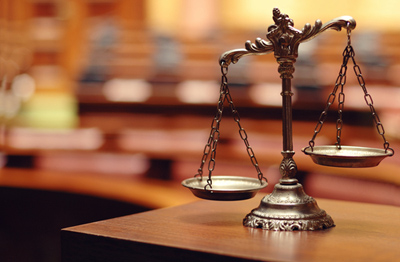After Chauvin’s conviction on all counts, what will his appeal look like?

Image from Shutterstock.com.
An appeal is “a virtual certainty” following the conviction Tuesday of fired Minneapolis police officer Derek Chauvin for killing George Floyd with a knee to his neck, according to USA Today.
Chauvin was convicted of all three charges against him: second-degree murder, third-degree murder and second-degree manslaughter.
ABA President Patricia Lee Refo issued a statement after the verdict, saying the association “respects the decision of the Minneapolis jury in the trial of Derek Chauvin while emphasizing that a single verdict is neither an indictment of all law enforcement nor a solution to the systemic inequities in our justice system.”
On Wednesday, U.S. Attorney General Merrick Garland announced an investigation of the Minneapolis Police Department to assess whether it has a pattern or practice of using excessive force, the New York Times reports.
Chauvin’s sentencing will be in eight weeks, according to Judge Peter Cahill of Hennepin County, Minnesota. Chauvin’s sentences on the three charges are likely to run concurrently, Vox reports. The maximum for the most serious charge, second-degree unintentional murder, is 40 years in prison.
But judges in Minnesota typically rely on sentencing guidelines, which make the base sentence 12.5 years because Chauvin has no criminal history. Next comes consideration of aggravating factors, which will be determined by the judge because Chauvin waived his right for a jury to make the call. Prosecutors claim that Chauvin acted with “particular cruelty” and abused his position of authority, aggravating factors that allow Cahill to increase the sentence.
USA Today, Vox, Reuters, Bloomberg and Politico have stories on issues that Chauvin may raise on appeal. They include:
• Failure to sequester jurors or move the trial because of publicity. Lead defense lawyer Eric Nelson had no success when he sought to delay the trial because of an announcement two weeks before the start date that the city of Minneapolis had agreed to pay $27 million to settle a civil suit over Floyd’s death. He also was unsuccessful in obtaining a mistrial because of a comment by Democratic U.S. Rep. Maxine Waters of California that protesters should “get more confrontational” if Chauvin is acquitted.
• Misconduct by a prosecutor in the closing argument. Nelson argued that a state prosecutor’s rebuttal crossed the line when he said Nelson’s defense was creating “stories” and “shading truth” to confuse jurors. His bid to get a mistrial on the issue failed. Minnesota has a rule that bars prosecutors from belittling the defense.
• Ineffective assistance of counsel. Nelson did not often object to emotional witness testimony, including testimony by the teenage who took the video of Floyd’s death. Darnella Frazier said she has stayed up some nights “apologizing and apologizing to George Floyd for not doing more and not physically interacting and not saving his life.”
• Incorrect third-degree murder charge. The law punishes those who cause death without intent “by perpetrating an act eminently dangerous to others and evincing a depraved mind, without regard for human life.” Cahill at first ruled that the law applies only when multiple people are put in danger and not when a dangerous act is directed at just one person, as in the case of Floyd. But Cahill reversed himself based on a subsequent appellate decision in the case of another former Minneapolis police officer.
• Cause-of-death testimony. Prosecutors sought to introduce new evidence on the cause of Floyd’s death and asked a pathologist legal questions that jurors will have to answer, some defense experts said.
• Testimony by Minneapolis Police Chief Medaria Arradondo. His testimony was expected to focus on the department’s training and policies, but he twice said Chauvin’s conduct violated department “ethics and values.”
USA Today points out that appeals rarely succeed; their success rate is about 10% or lower.
Write a letter to the editor, share a story tip or update, or report an error.


